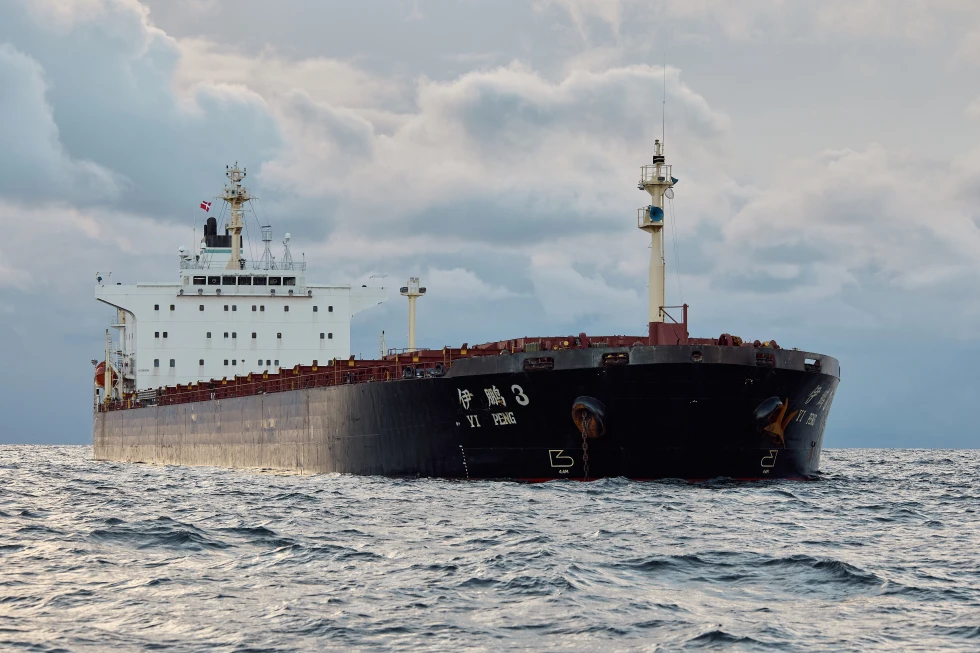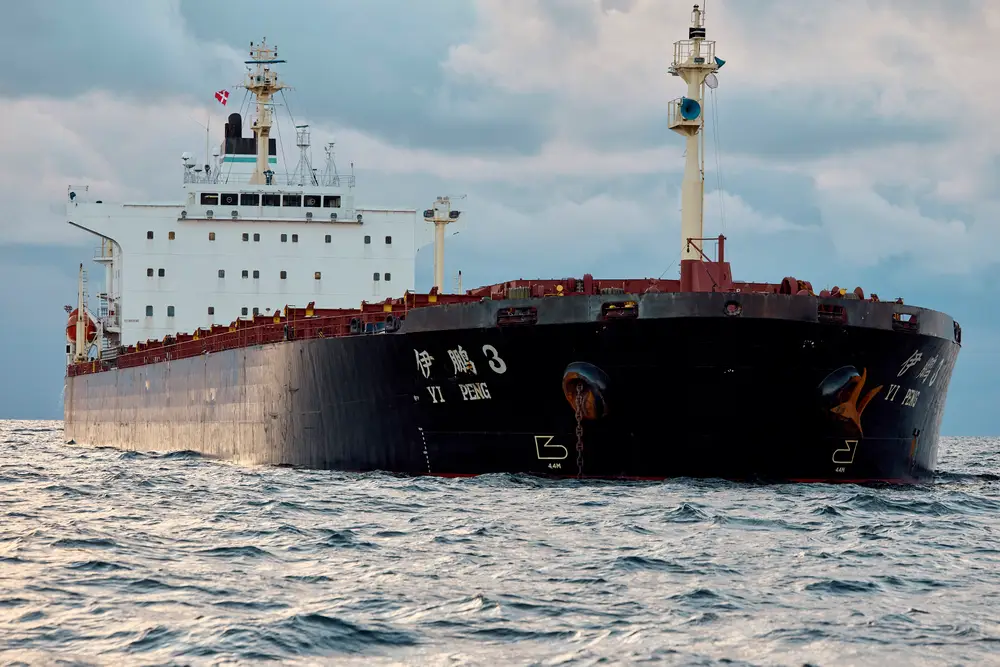Swedish police to go aboard Chinese ship that was seen near Baltic cable ruptures

Swedish authorities have announced plans to board a Chinese ship that was recently spotted near the site of ruptured cables in the Baltic Sea, raising suspicions of foreign involvement in the incidents. The announcement follows an ongoing investigation into the mysterious damage to key undersea communication and energy cables in the region, which has raised concerns over both national security and geopolitical tensions.
The Baltic Sea Cable Incidents
The Baltic Sea is a critical region for both energy and communication infrastructure, with numerous subsea cables running along the seafloor, linking countries in Europe and beyond. These cables are essential for transmitting data, electricity, and communications across borders, making them a key part of the continent’s infrastructure. In recent weeks, however, several cables in the Baltic Sea have been discovered to be damaged, leading to a heightened sense of alarm in Sweden and neighboring countries.
The cables that were ruptured or damaged are believed to be vital for both civilian communications and energy distribution. The incidents have disrupted services in some areas, including communication networks and electricity transmission between nations. While no immediate cause for the damage has been determined, the proximity of a Chinese ship to the affected areas has prompted suspicions of potential foreign involvement, particularly regarding sabotage or espionage.
Swedish Police’s Decision to Board the Chinese Ship
The decision by Swedish police to board the Chinese vessel comes after a period of mounting tension in the region. Swedish authorities were alerted to the ship’s presence near the damaged cables and have since launched an investigation to determine whether it had any role in the ruptures. Given the strategic significance of these undersea cables, any potential sabotage could have serious consequences for regional security and stability.
Sweden has long been a key player in the protection of undersea cables, particularly given its location on the Baltic Sea. The Swedish government has expressed concern over the possibility of external interference, particularly in light of rising geopolitical tensions in the region. Sweden’s decision to investigate and board the ship underscores the importance of protecting critical infrastructure and sending a strong message that any deliberate attempts to damage or disrupt such infrastructure will not be tolerated.
The Chinese vessel in question was reportedly spotted near the locations where the cable damage occurred, but it remains unclear whether there is a direct link between the ship and the incidents. Swedish officials have not publicly stated the specific role they believe the ship may have played, but the authorities are taking the necessary steps to investigate the matter thoroughly. Boarding the ship is a crucial part of this investigation, as it will allow Swedish police to gather evidence and determine whether any unlawful activity took place.
Rising Geopolitical Tensions
The investigation into the damaged Baltic Sea cables comes amid growing tensions between China and Western nations. Recently, concerns have mounted over China’s increasing influence and military activities in various parts of the world, including the South China Sea and the broader Indo-Pacific region. While the Chinese government has repeatedly denied any involvement in covert activities abroad, there have been ongoing reports of Chinese espionage and cyberattacks targeting critical infrastructure worldwide.
The proximity of the Chinese ship to the ruptured cables has only added fuel to these concerns, particularly for countries like Sweden, which is an integral member of the European Union. The potential link between the ship and the cable damage has highlighted fears of a broader campaign of disruption targeting key European infrastructure. If the ship is indeed found to have been involved in any unlawful activities, it could lead to significant diplomatic fallout between China and Sweden, as well as with other EU member states.
However, Swedish officials have been careful not to make definitive claims without sufficient evidence. Authorities have emphasized that the investigation is ongoing and that the priority is to gather all available information before concluding. The decision to board the Chinese ship is part of a broader effort to ensure transparency and accountability in the investigation process.
The Importance of Protecting Undersea Cables
Undersea cables are critical to modern communication and economic activity, carrying around 95% of global internet traffic and enabling international trade, finance, and communication. Any disruption to these cables can have far-reaching consequences, both in terms of immediate impacts on services and long-term consequences for national security and economic stability.
In the case of the Baltic Sea, the cables affected by the damage are particularly important because they connect countries in the region to each other and to the rest of Europe. The integrity of these cables is vital for maintaining communication between NATO members, ensuring the smooth functioning of trade, and maintaining national security.
Sweden, along with its Nordic and EU allies, has long prioritized the protection of these critical infrastructures. Over the years, Sweden has worked closely with its partners to ensure that cables remain secure from potential threats, including both physical damage and cyberattacks. The damaged cables in the Baltic Sea have prompted renewed discussions on the need for enhanced security measures and greater international cooperation to safeguard these vital assets.
Diplomatic Implications
The diplomatic ramifications of the investigation and the boarding of the Chinese ship could be significant. Relations between China and Sweden, already strained over issues such as human rights and political disagreements, may become further complicated if the investigation uncovers any evidence of Chinese involvement in the cable damage. Should any direct connection between the Chinese vessel and the ruptures be established, it would be seen as a major escalation in the geopolitical tensions surrounding China’s actions abroad.
On the other hand, if no evidence is found linking the ship to the cable damage, it could help to quell concerns over Chinese interference, although suspicions regarding foreign influence in the region would likely persist. Regardless of the outcome, the investigation is likely to have lasting effects on how countries in the Baltic region approach security and cooperation with China.
Swedish authorities’ decision to board a Chinese ship in connection with the damaged cables in the Baltic Sea highlights the increasing importance of safeguarding critical infrastructure in the face of rising geopolitical tensions. As investigations continue, the world will be watching closely to see whether this incident is part of a broader pattern of foreign interference or a case of misdirected suspicion. Regardless of the outcome, this event serves as a reminder of the vulnerability of undersea cables and the need for vigilance in protecting these crucial assets.






